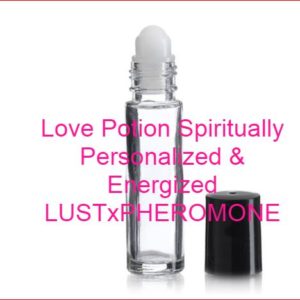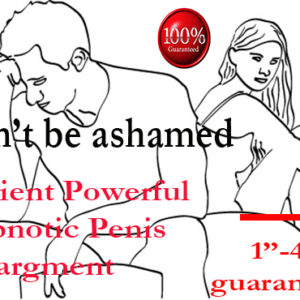Some psychologists and psychiatrists would argue that bipolar disorder and hypnotherapy don’t mix, but I don’t believe this to be strictly true. I believe psychology and bipolar disorder can be linked to depression. People suffering from Unipolar disorder will display behavior that varies between depression and normality. Depression can have an impact on 5% of the population at any given time, and less than 1% of the population can suffer from bipolar disorder. It is estimated that 5.7 million adults suffer from the condition, with symptoms usually manifesting at around the age of 25. Bipolar disorder can cause people to suffer dramatic mood swings that can cause them to react in unpredictable ways without warning. For example, a person can be very happy and the life and soul of the party one minute, and then suddenly very argumentative or aggressive the next, reaching a point where they can become verbally and even physically abusive. Then, just as abruptly, they go back to their happier mood as if nothing happened. They are big spenders and very good at fooling others that they are fun to be around. They are happy, socialize and go about their business as if nothing is wrong. They are almost like good professional actors, however they are not acting, they are actually mentally ill.
Bipolar disorder can be difficult to diagnose because there is no blood test or brain scan that can detect it. It also has a long history of being either undiagnosed or misdiagnosed. A physical exam is the first step towards diagnosis and blood work is taken to rule out any medical illnesses, such as syphilis, which can present significant psychological symptoms. A brain scan is ordered to exclude epilepsy and brain legions, and a verbal history is taken.
There are four types of bipolar disorder:
Bipolar I: This is marked by extreme cycles between depression and mania (periods of inappropriate elation, lack of concern for problems, hyperactivity, and overconfidence, lack of sleep, hypersexuality, impulsive behavior, such as drug use or excessive spending).
Bipolar II: This is a type of bipolar disorder where the person has much milder manic phases, called hypomania.
Cyclothymic disorder: This involves numerous hypomanic episodes with a spattering of depression. It is usually a low grade mood disorder that does not generally interfere with daily functioning.
Bipolar disorder NOS: This means that the person is clearly suffering from a type of bipolar disorder but does not meet the full criteria for any of the above.
So, why would some professionals advise that Bipolar and hypnotherapy don’t mix? In my personal and professional opinion, it’s quite possibly their personal opinion is grounded on their lack of knowledge about what hypnosis is and does to help people. However, any hypnotherapist who isn’t highly skilled may run the risk of either not being effective or even causing additional harm. Bipolar has a large brain chemical imbalance component and, therefore, a treatment of this nature may be required. This is why doctor referral is a must when working with a bipolar client.
Treatment and solutions:
Bipolar disorder is a serious medical illness. It can be difficult for someone who does not suffer from the disease to really understand it, and yet it is understanding and patience that is needed to help your loved ones manage bipolarity. A person suffering from bipolar disorder cannot just “snap out of it” when depressed, or “calm down” when manic. It is not a weakness or character flaw; the chemistry in their brain simply manipulates their behavior. It is a biochemical disease that new information shows may be genetic in nature as well, and although there is no cure, bipolar disorder can be dealt with by working closely with a professional psychologist or psychiatrist to develop a treatment plan. Usually, a treatment plan involves the administration of a mood stabilizer such as lithium or Risperdal, in conjunction with talk therapy; this is where hypnosis comes into play. Hypnosis can help clients with bipolar to keep taking their medication on time instead of forgetting or skipping it when they are feeling a little better, unless their doctor is confident enough to take them off after receiving hypnotherapy treatment, when he or she can live a full and successful life despite the presence of bipolar disorder.
I’ve had many clients I worked with using hypnotherapy, and my methods didn’t aggravate any of their bipolar symptoms. The hypnotherapy sessions focused on specific issues that had no relation to moods, and the therapist had full disclosure of potential triggers to mood events. It wasn’t something I jumped right into and I made sure the therapist I worked with was fully certified and had experience in what she was doing. We targeted unhealthy habits like smoking and drinking soda. Obviously cleaning up the client’s health can have a positive effect on mood swings. Not wanting to sound cynical, but many psychologists and psychiatrists do discourage their patients from using hypnotherapy alongside their regular treatments, saying that it’s ineffective, or that it could cause them more harm than good, etc. These types of professionals are basing their advice on personal prejudice and not what is best for their patient. Just keep in mind that you have the right to work with a doctor, psychologist or psychiatrist who is open-minded and respect other forms of therapy and willing to help you as a team. From my experience, there are professionals who would love to refer you to a trained hypnotherapist that knows what he or she is doing.
Hypnotherapy approaches mental illness very differently, looking into metal toxicity. We prepare a total wellness plan for the person taking everything into consideration; Mind, Body and Spirit. The results are positive and the client can have much more control over their mood swings or any other illness. This approach does not make the drug companies less rich but acknowledges the fact that hypnotherapy is one of the best affective approach in helping others in a much natural way of healing and self-improvement!
Disclaimer: I am not a doctor and am not qualified to give medical advice of any kind. This article is for the purpose of education about Bipolar and the effectiveness of hypnosis. Feel free to share your comments, because it’s great to share your personal stories and interact with others who may be living with bipolar disorder. For more information about how we can help and support you, feel free to contact us for free consultations to find out if we can help you deal with your unwanted behaviors.
If you think you or someone you know may be suffering from bipolar disorder, please contact your doctor right away.




 May 24th, 2013
May 24th, 2013  doreen.co
doreen.co  Posted in
Posted in  Tags:
Tags: 










 HMI Private Practice of Hypnotherapy Provider
Primary specialty: Alternative Medicine
Secondary speciality: Behavior Therapy
Doreen is an
Honors Graduate of HMI and also a Certified Practitioner /Facilitator of The Melchizedek MethodT (incorporating the Hologramof Love Merkaba). Energy Healer since August 1999, she was healedfrom a car accident preventing back surgery and being able toeliminate her back pain with hypnotherapy and energyhealing
Doreen is an Honors Graduate of HMI and also a Certified Practitioner / Facilitator of The Melchizedek MethodT (incorporating the Hologram of Love Merkaba). Energy Healer since August 1999,...
HMI Private Practice of Hypnotherapy Provider
Primary specialty: Alternative Medicine
Secondary speciality: Behavior Therapy
Doreen is an
Honors Graduate of HMI and also a Certified Practitioner /Facilitator of The Melchizedek MethodT (incorporating the Hologramof Love Merkaba). Energy Healer since August 1999, she was healedfrom a car accident preventing back surgery and being able toeliminate her back pain with hypnotherapy and energyhealing
Doreen is an Honors Graduate of HMI and also a Certified Practitioner / Facilitator of The Melchizedek MethodT (incorporating the Hologram of Love Merkaba). Energy Healer since August 1999,...